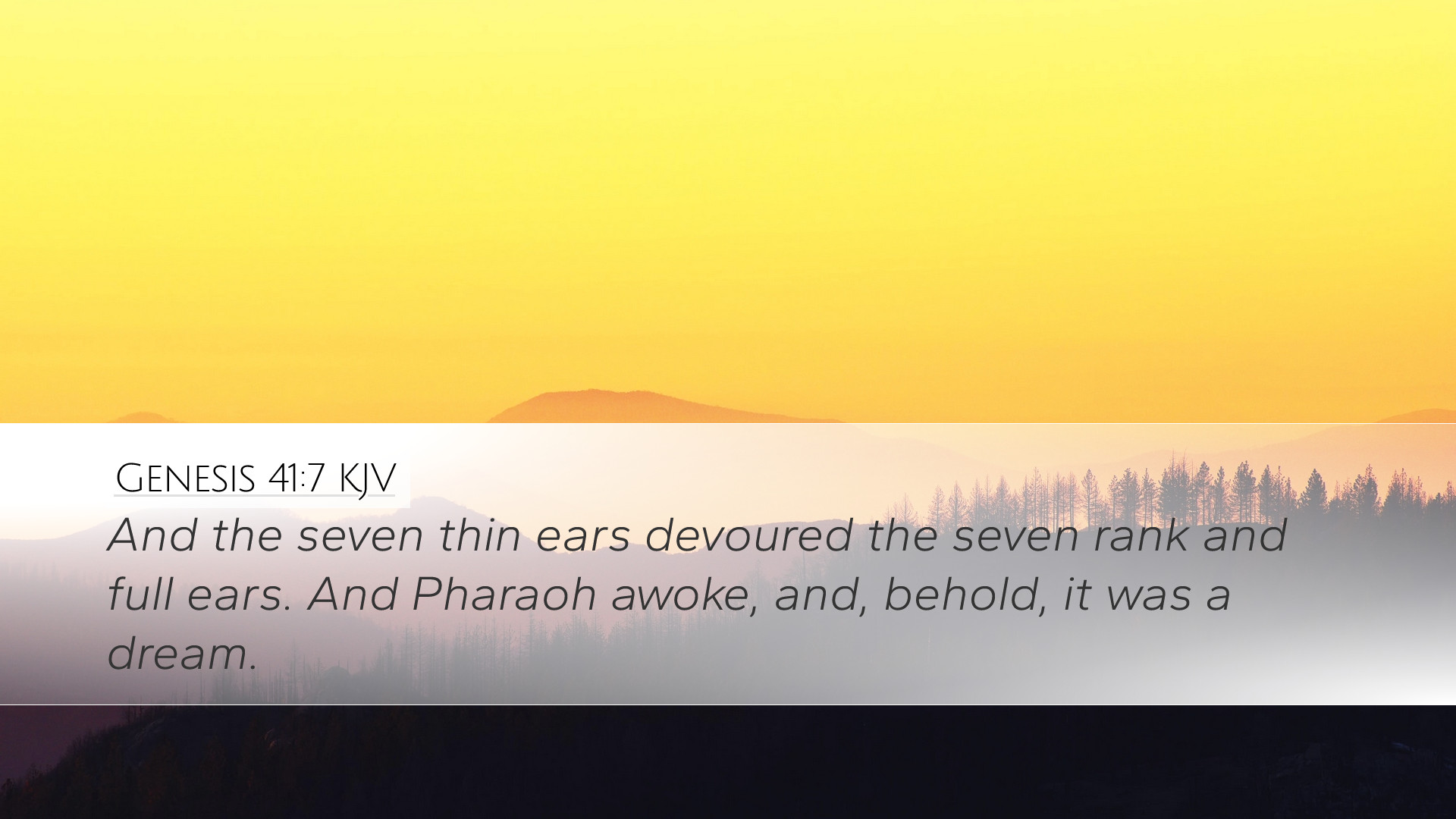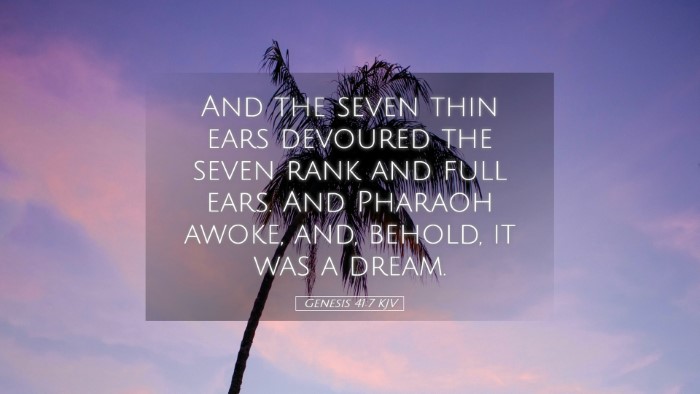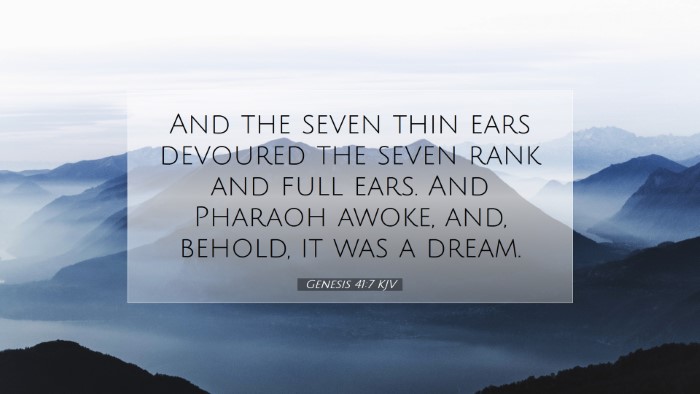Commentary on Genesis 41:7
The passage of Genesis 41:7 describes the significant moment when Pharaoh experiences two dreams that trouble him, leading to a series of events culminating in Joseph's rise to prominence in Egypt.
Contextual Overview
Genesis 41 marks a pivotal point in the narrative of Joseph, who has been wrongfully imprisoned for a significant period. The chapter begins with Pharaoh's dreams, which are of particular importance as they foreshadow the coming famine and God's providential plan through Joseph.
Verse Analysis
Text of Genesis 41:7
"And the thin ears devoured the seven rank and full ears. And Pharaoh awoke."
Spiritual Significance
This verse encapsulates the reality of Pharaoh's disturbed state and serves as a metaphor for the consuming nature of crises in human affairs. The "thin ears" represent scarcity and want, which annihilate the "full ears," symbolizing abundance and prosperity.
Theological Themes
- Divine Sovereignty: This narrative highlights God's sovereignty over nations and His ability to control the course of history, culminating in His chosen servant, Joseph.
- Preparation and Providence: The events that unfold are part of God’s providential plan to prepare Joseph for leadership, illustrating a theme of divine preparation in the face of human adversity.
- Interpretation of Dreams: The necessity of divine interpretation is underscored, as reflected in Joseph's ability to discern the meaning of Pharaoh's dreams, showcasing his God-given wisdom.
Commentary Insights
Matthew Henry's Commentary
Henry emphasizes the importance of Pharaoh's dreams, noting their providential nature. His reflections on the "thin ears" consuming the "full ears" reveal that when famine strikes, it brings about a reversal of fortunes. The dreams serve as a vivid reminder of the transitory nature of earthly goods and the supremacy of God's plan over human affairs.
Albert Barnes' Commentary
Barnes provides an exposition that anchors the dreams within the cultural and political milieu of Egypt. He points out that the thin ears of corn signify impending calamity that would follow the years of abundance. The dire predictions carried great weight, as the dreams foretold not only material loss but also spiritual decline among the people. He articulates that Pharaoh’s distress was a catalyst for Joseph's elevation, showcasing a divine orchestrator at work even behind the scenes of governance.
Adam Clarke's Commentary
Clarke offers an analytical view of the dream's symbolism and its implications for governance. He notes that the consumption of the full by the thin signifies the total devastation that would follow if not addressed properly. The verse is emblematic of God’s revelation to leaders, which calls for wisdom and discernment in times of impending crisis. Clarke underscores the urgency of the situation, illustrating how divine messages were often veiled in mystery, requiring the faithful to seek understanding through prayer and insight.
Lessons and Applications
- The Importance of Discernment: Leaders, both secular and spiritual, must seek divine wisdom to navigate crises. Understanding God's message is fundamental in times of uncertainty.
- Hope in God’s Provision: Even in dire circumstances, like famine or personal trials, believers can find hope in God’s providence and preparing for future challenges.
- Transformation through Adversity: Joseph’s journey illustrates how adversity can pave the way for growth and opportunity, reminding us to remain steadfast in faith during trials.
Concluding Reflections
Genesis 41:7 serves not only as a narrative element in Joseph's story but also as a profound theological reflection on God's control over life's events. The troubling dreams of Pharaoh are an indispensable part of the divine orchestration that leads to restoration and revelation. For scholars, pastors, and theologians, this verse invites deep contemplation about how God communicates and prepares His people for what lies ahead.


